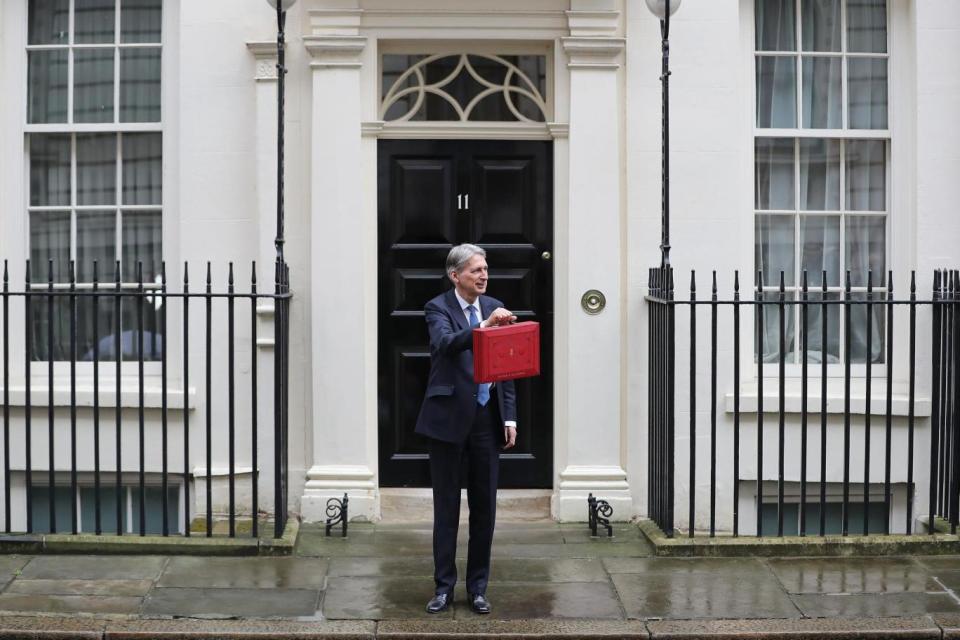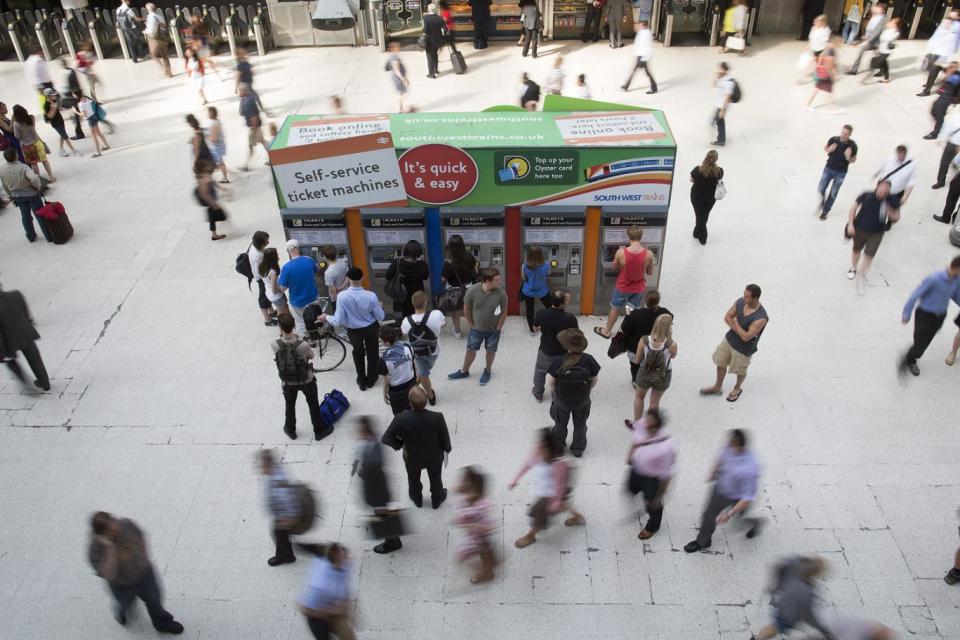UK Budget 2017: When is the speech and what is expected? Everything you need to know about Phillip Hammond's announcement
The government’s plans for tax and spending will be announced tomorrow in the chancellor’s Budget speech.
Phillip Hammond’s address marks the biggest single event of the year concerning the future of the UK’s finances.
A number of measures expected to be delivered in his announcement have already been announced ahead of the event.
Here is everything you need to know about the Budget, including the time, leaked proposals and what impact it may have on London...
Follow the latest on the Budget in our LIVE BLOG here
What time is the Budget?
It will get under way at about 12.30pm on Wednesday, November 22, and follows Prime Minister’s Questions in the Commons (at midday).
Once that is over, the Chancellor will deliver the speech.
Generally, the announcement is about an hour long. After the speech, leader of the Labour opposition Jeremy Corbyn will get the first response to Mr Hammond’s address. Then MPs will debate it.

Why is housing a hot talking point ahead of the speech?
Two aspects of the Budget relating to housing have been announced already, ahead of tomorrow’s speech.
We know that there will be changes to rules surrounding social housing, with ministers promising more measures to fund house-building. Mr Hammond also said the Budget will set out how the government will build 300,000 new homes a year.
The chancellor said there was no "single magic bullet" to increase housing supply and the government would not simply "pour money in".
He wants to speed up developments where planning permission has been granted and give more help to small building firms, he added.
Speculation is also mounting that changes to stamp duty will be unveiled, including cutting it for first-time buyers.
What other proposals do we already know about?
After the chancellor speaks generally about the state of Britain’s finances, he will announce specific measures that will be taken.
We know already that Mr Hammond will talk about investment in driverless cars. He said he wants to see "fully driverless cars" without a safety attendant on board in use by 2021.
Ahead of the speech, the chancellor has announced that proposals for a new discounted railcard for 26 to 30-year-olds will be discussed in the Budget.
The Chancellor will also use his Commons statement to announce a review of airline insolvency arrangements following the recent collapse of Monarch Airlines, leaving 110,000 passengers without a flight home.

How will the Budget impact London?
London Mayor Sadiq Khan called on Mr Hammond to make changes that will help lift the capital from the ongoing housing crisis.
In a wide-ranging letter to the chancellor, he wrote: “Without government supporting a step change in our freedoms, resources, and powers, London’s housing crisis will continue with no end in sight.
“The prime minister committed during her recent conference speech to ‘getting government back into the business of building houses’, including ‘a new generation of council houses’ – but so far her actions have fallen dramatically short of what is needed.
“We urge you to use your Budget this week to support a new generation of council homebuilding, and allow us to build a city that works for all Londoners.”
In his speech, Hammond is expected to unveil a raft of measures that will affect homebuyers, builders and estate agents.
The Government plans to get 300,000 homes built every year — the equivalent of a city the size of Leeds.
This could be aided by new powers and planning rules to ensure companies start building on sites that already have planning permission.
Pubs, restaurants and retailers in the capital will be hoping that chatter about changes to business rates are true. Some reports have claimed that Hammond is poised to offer an olive branch to companies that have been crippled by higher rates bills, and scrap plans to raise business rate tax by 3.9 per cent next April.
Another measure being mooted is a shake-up in how firms pay their rates, including a potential self-assessment style system.

Will this be a Budget for young people?
Mr Hammond told his Conservative peers there is a need to address the financial situation of young people. He asked Tory MPs to submit ideas and drew attention to the difference between older people in secure financial positions and youth saddled with large debts as students.
A key issue surrounding this idea is Home ownership. Home ownership among young people has plummeted after rules on banks lending to first-time buyers made the costs of their mortgages increase.
The number of young people still living with their parents has been rising. According to the Office for National Statistics, around 2.7 million, - 21 per cent - of those aged between 20 and 34 were living at home in 1996. That figure has risen to 3.4 million - 26 per cent - in 2017.
Young people were for a long time expected to be better off than their parents at comparable ages. But some data now shows recent generations have been worse off.
Will changes to austerity levels be made?
Many viewers will be watching the Budget to see if changes are made to public sector pay and benefit levels, which are two key planks of austerity.
Jobseeker's Allowance, Employment and Support Allowance, some types of Housing Benefit, and Child Benefit are momentarily halfway through a four-year freeze.
A cap on public sector pay rises has been in place in some way or another since 2010.
Why is the Budget important?
Apart from being the major set-piece event where the Chancellor sets out how the Government will spend the nation's money, this Budget arrives at a time of acute political sensitivity.
Since losing the Tories' parliamentary majority, and some of her authority, at the general election, Theresa May has suffered a series of setbacks including Cabinet resignations and a botched coup attempt after a mishap-strewn party conference speech.
There is also a lot on the line for Mr Hammond, who will have Brexiteers who want him sacked over his perceived support for a "soft" Brexit ready to pounce on any mistakes.
Why isn’t the Budget called the Autumn Statement anymore?
The Autumn Statement, as it was called, was scrapped by Phillip Hammond last year.
It has now been replaced with a Spring Statement, with the Budget presented later in the year.
In 2018, a Spring Statement will be given for the first time.
The Government said changing the tax system once a year - rather than twice - will lead to greater financial stability.

 Yahoo News
Yahoo News 